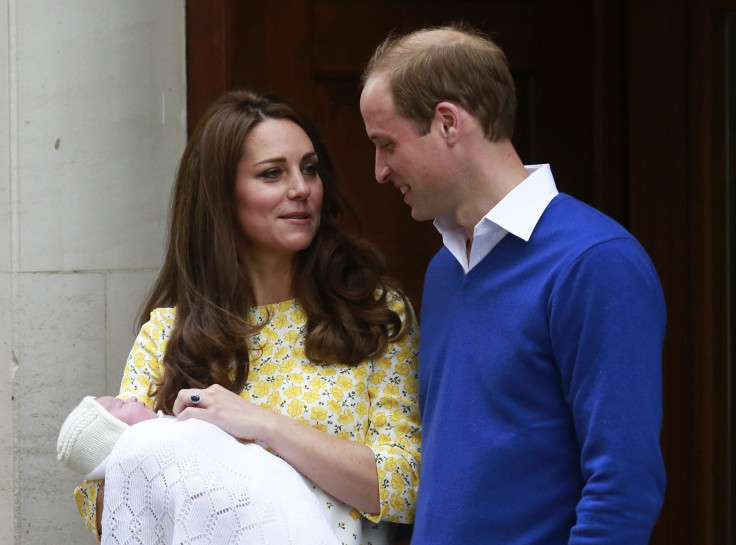Kate Middleton Pregnancy Complication? Duchess Suffering From Hyperemesis Gravidarum Again

Kate Middleton and Prince William are expecting their third child, the Kensington Palace announced Monday. The Duke and Duchess of Cambridge are already parents to Prince George, 4, and Princess Charlotte, 2.
While announcing the big news, the palace also said that the mother-to-be is suffering from Hyperemesis Gravidarum, a type of pregnancy complication. When Middleton was pregnant with Princess Charlotte in 2012, the duchess had complained of severe morning sickness. Hyperemesis gravidarum can be risky if left untreated and in some cases may also require hospitalization.
"As with her previous two pregnancies, the Duchess is suffering from Hyperemesis Gravidarum. Her Royal Highness will no longer carry out her planned engagement at the Hornsey Road Children's Centre in London today [Monday]. The Duchess is being cared for at Kensington Palace," the palace said in a statement.
The Duke and Duchess of Cambridge are very pleased to announce that The Duchess of Cambridge is expecting their third child pic.twitter.com/DZCheAj1RM
— The Duke and Duchess of Cambridge (@KensingtonRoyal) September 4, 2017
The news of Middleton's pregnancy comes as 4-year-old Prince George prepares to start school at Thomas’ Battersea in London on Sept. 7. His parents are supposed to accompany him for the first day.
What is Hyperemesis Gravidarum?
Hyperemesis Gravidarum is the medical terminology for excessive nausea and vomiting, and the complication affects only 1 percent of pregnancies. More than 1,000 abortions each year are linked to the severe pregnancy sickness. However, with proper care, the symptoms of the severe form of morning sickness may go off by 20 weeks of pregnancy.
According to reports, this severe nausea is caused by a rise in hormone levels, however, the actual cause is still unknown. The initial symptoms of symptoms of Hyperemesis Gravidarum usually appear between 4-6 weeks of pregnancy and may increase between 9-13 weeks. There is no known prevention of Hyperemesis Gravidarum.
Signs and symptoms:
1. Severe nausea and vomiting
2. Food aversions
3. Weight loss of 5 percent or more of pre-pregnancy weight
4. Decrease in urination
5. Dehydration
6. Headaches
7. Fainting
8. Jaundice
9. Extreme fatigue
10. Low blood pressure
11. Rapid heart rate
12. Secondary anxiety/depression
Kate Middleton, whose due date is yet to be revealed, may have to temporarily withdraw herself from her royal duties due to the pregnancy complication. However, even during her last pregnancy, the 33-year-old made several public appearances despite the morning sickness.
The Duke and Duchess always had plans to grow their family. Not long after Princess Charlotte's birth in 2015, Prince William had praised his wife's “amazing” mothering skills.
Most recently, a source told Us Weekly that the Middleton and her sister Pippa Middleton planned to have children together.
"It's long been a dream for Kate and Pippa to be pregnant at the same time," a Middleton family friend revealed. "To share that would be amazing."
© Copyright IBTimes 2024. All rights reserved.





















